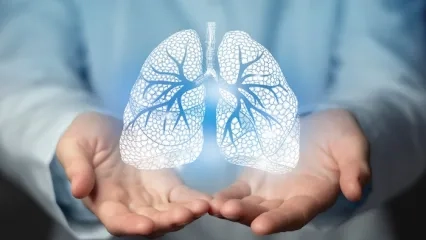Alo Yeditepe
Alo Yeditepe
What Causes Insomnia, Diagnosis and Treatment
Balancing work and social life can sometimes mean sacrificing a good night's sleep. However, sleep deprivation can trigger serious and wide-ranging health issues beyond feeling a little tired.
So, what are the causes of insomnia? What are the signs that indicate not getting enough sleep? Dr. Seha Akduman, an Associate Professor and Chest Diseases Specialist at Yeditepe University Hospitals, explains the reasons for insomnia and what can be done to fight it.
What are the factors that cause insomnia?
It is known that many physiological diseases can cause insomnia. However, it should not be forgotten that non-physiological factors can also disrupt sleep quality. Insomnia can be caused by medication use, incorrect use of medication in some cases, failure to maintain good sleep hygiene, psychological disorders, or chronic stress, among other reasons. The Centers for Disease Control and Prevention (CDC) also indicate that insomnia is associated with cardiovascular disease, diabetes, and depression. A group of researchers from Colombia University has found that a diet rich in carbohydrates is related to insomnia.
What health problems can frequent insomnia/sleep deprivation cause?
Chronic sleep deprivation can have serious consequences on both physical and mental health. It can increase the risk of accidents, reduce work performance, and cause mood disorders. In the long term, it can lead to obesity, hypertension, and diabetes due to increased caloric intake. Some studies even suggest that sleep deprivation can increase the risk of heart attacks. People who suffer from prolonged sleep deprivation may become more irritable and aggressive, experience decreased intellectual capacity, and feel more fatigued. Hormonal imbalances, fluctuations in blood sugar and blood pressure, menstrual irregularities, thyroid hormone abnormalities, growth and development disorders in children, and abnormalities in the immune system (such as increased susceptibility to illness and delayed healing) can also occur.
What are the symptoms that occur in our body when we are insomniac?
The first place that insufficient sleep signals appear in people who do not sleep enough is the eyes. Red, swollen, and dark circles under the eyes are signs of insufficient sleep. These individuals also tend to be more depressed and irritable in their daily lives. In addition to all these symptoms, waking up with a headache in the morning, experiencing throat burning and dryness may suggest symptoms of sleep apnea. It is also important not to overlook the problem of apnea, which is one of the most important factors in sleeplessness.
Does not getting enough sleep trigger eating?
During sleep, our body secretes many hormones. Not sleeping during the hours when these hormones are released means that the hormones will not be secreted, and unnecessary calories will not be burned. On the other hand, research shows that there may be significant changes in the levels of the hormones ghrelin and leptin, which regulate appetite, between those who have poor quality sleep and those who do not sleep. Disruptions in hormone levels and failure to maintain balance can disrupt a person's hunger and satiety signals.
How does insomnia affect memory and why?
Insomnia is known to disrupt the processing of information properly due to the overworking of neurons. Among the observed symptoms during this condition, decreased abilities in planning, timing, and sound recognition are also included. Overworking of neurons can lead to a lack of rest for muscles and the inability of organs to function synchronously.
Why does insomnia cause body heat to rise?
The circadian rhythm is closely related to many physiological systems that affect falling asleep, waking up, and staying awake during the day. The circadian rhythm is closely related to light-dark cycles, body temperature, melatonin secretion, cortisol levels in the blood, and appetite. As darkness falls, the accumulation of the sleep-inducing substance (S) and the increase in melatonin secretion in the body trigger sleep. After the first half of sleep, the sleep-inducing substance and melatonin secretion begin to decrease, and waking up in the morning occurs when the light stimulates the receptors in the retina of the eye. The circadian rhythm continues in a regular pattern for 24 hours. When sleep disorders occur, the circadian rhythm is disrupted and the entire system collapses. As a result of the disruption to the temperature regulating system, the body temperature increases by 1-2 degrees.
How much sleep do people need and at what age? Do all age groups have the same sleep needs?
The sleep needs of individuals vary by age. While newborns require an average of 16-27 hours of sleep, this amount decreases as people get older. Research suggests that the decrease in sleep hours with age is due to changes in the body's internal clock. Based on these findings, the recommended sleep hours for different age groups are as follows: Teenagers (14-17 years old): 8-10 hours, young adults (18-25 years old): 7-9 hours, adults (26-64 years old): 7-9 hours, older adults (+65 years old): 7-8 hours.
How is insomnia diagnosed?
It is difficult to make a definite diagnosis of insomnia as individuals may not be aware that they are experiencing it. If there is an underlying condition causing insomnia, such as sleep apnea, family members or partners may be the first to notice the person's breathing stopping or excessive snoring during sleep and direct them to seek medical help. However, if someone is experiencing chronic insomnia and is not aware of it, they may delay seeking medical help or taking action to address the problem. When someone seeks medical help for insomnia, the physician will first conduct tests to determine if there are any physical causes for the problem. They may then ask the patient to keep a sleep diary to help identify patterns. The next step may involve spending a night in a sleep clinic where brain waves, breathing patterns, heart rate, eye movements, and body movements are monitored to diagnose the problem.
Does the time of day that we sleep have any significance?
The Melatonin hormone, which facilitates sleep and regulates the circadian rhythm, begins to be secreted in the evening and continues to increase until around 2-3 am. Additionally, the growth hormone reaches its highest level around midnight. Therefore, it is important to fall asleep no later than 11:00 pm. In order to ensure the secretion of these hormones, it is important to sleep in a dark environment, free from noise and disturbances. Cortisol and adrenaline secretion begin to increase from 6:00 am, and sleep after this time is not as effective.
What can be done to fight insomnia?
Do not Consume Foods and Beverages that Disrupt Sleep; Caffeine (coffee), nicotine (cigarettes), and theine (tea) keep you awake, causing those who consume these substances to take longer to fall asleep. Therefore, it is necessary to avoid consuming these substances 3 hours before going to bed in order to have a comfortable night's sleep.
Stay Away from Alcohol; Although many people think that alcohol helps to sleep, it actually has a negative effect on the quality of sleep. Even if you fall asleep quickly after drinking alcohol, it will cause short awakenings during sleep and early morning fatigue.
Establish a Sleep Routine; it is important for bedtime and wake-up times to be as regular as possible. This also helps prevent disruption of the biological rhythm. Waking up at the same time every morning is another good method for regulating sleep.
Sleep at Night, Not During the Day, and Avoid Napping; Daytime sleep is not the same as nighttime sleep. Sleep should be at night, and waking up after daylight and not sleeping too late is important.
Avoid Exercise Close to Bedtime; People who do not exercise may have trouble falling asleep at night, but exercising too close to bedtime can also disrupt sleep. Regular exercise can improve sleep, but it is important to find the right time for exercise. It is recommended to exercise in the afternoon or early evening, leaving at least two hours before bedtime. Early morning exercise is not recommended.
Maintain Good Sleep Hygiene; Many factors such as bedroom temperature and lighting can disrupt sleep hygiene. The bedroom should be quiet, and even if eyes are closed, light can still be detected and disturb sleep, so thick, light-blocking curtains are recommended. Televisions or computers should not be kept in the bedroom, and cell phones should not be used in bed.
Do not Wait for Sleep in Bed; Spending a long time in bed waiting for sleep can make it harder to fall asleep. Only go to bed when you feel sleepy. If you cannot fall asleep within 20 minutes, get out of bed, and engage in a passive activity such as reading a non-exciting book or listening to calming music until sleepiness returns.Pay Attention to What You Eat Before Bedtime; It is important to avoid going to bed very hungry or eating heavy meals close to bedtime. Eating should be avoided at least 3 hours before the desired sleep time, and light meals should be eaten in the evening. Snacking to pass the time should also be avoided when unable to sleep.
About
Faculty and Year of Graduation:
Gazi University Faculty of Medicine, 2007
”
See Also
- How to Cleanse Your Lungs?
- Is Breathing Air Dangerous in Fires?
- What is Electronic Cigarette Disease (EVALI)? EVALI Symptoms and Treatment
- What is COPD? Symptoms and Treatment of COPD
- Long Journeys Increase the Risk of Embolism!
- What Asthma and COPD Patients Should Pay Attention to When Using Air Conditioning!
- What is Allergy? What are the Symptoms of Allergy?
- What is Desert Dust? Harms of Desert Dust
- Lung Cancer Screening Age
- What is Good for Cough? How to Cure Cough?
- Lung Cancer Symptoms and Treatment
- 10 Ways to Have a Sound Sleep in the Heat
- What Should Asthma Patients Be Cautious About?
- Does Poor Quality Sleep Increase The Risk of Asthma?
- 9 Common Misconceptions About COPD
- Causes, Symptoms, and Treatment of Asthma
- Allergy and Asthma During Pregnancy
- It Is Aimed to Eliminate Tuberculosis Worldwide By 2030
- Lung Patients Should Not Stop Their Medications
- 4 Significant Preliminary Symptoms of Lung Cancer
- How Does Acid Rain Affect Human Health?
- The Slowing Traffic in Istanbul Increases the Risk of Cancer!
- The American Cancer Society Has Announced; The Age of Screening For Lung Cancer Has Decreased
- Hidden Lung Cancer Cases Revealed in Tomographs Taken Due to Coronavirus
- Obesity is Both a Cause and Consequence of Sleep Apnea
- Asthma and COPD Attack Season Begins
- Lung Cancer
- Snoring and Its Treatment
- Using Antipyretics Uncontrolled Can Hide Pneumonia Symptoms
Alo Yeditepe




